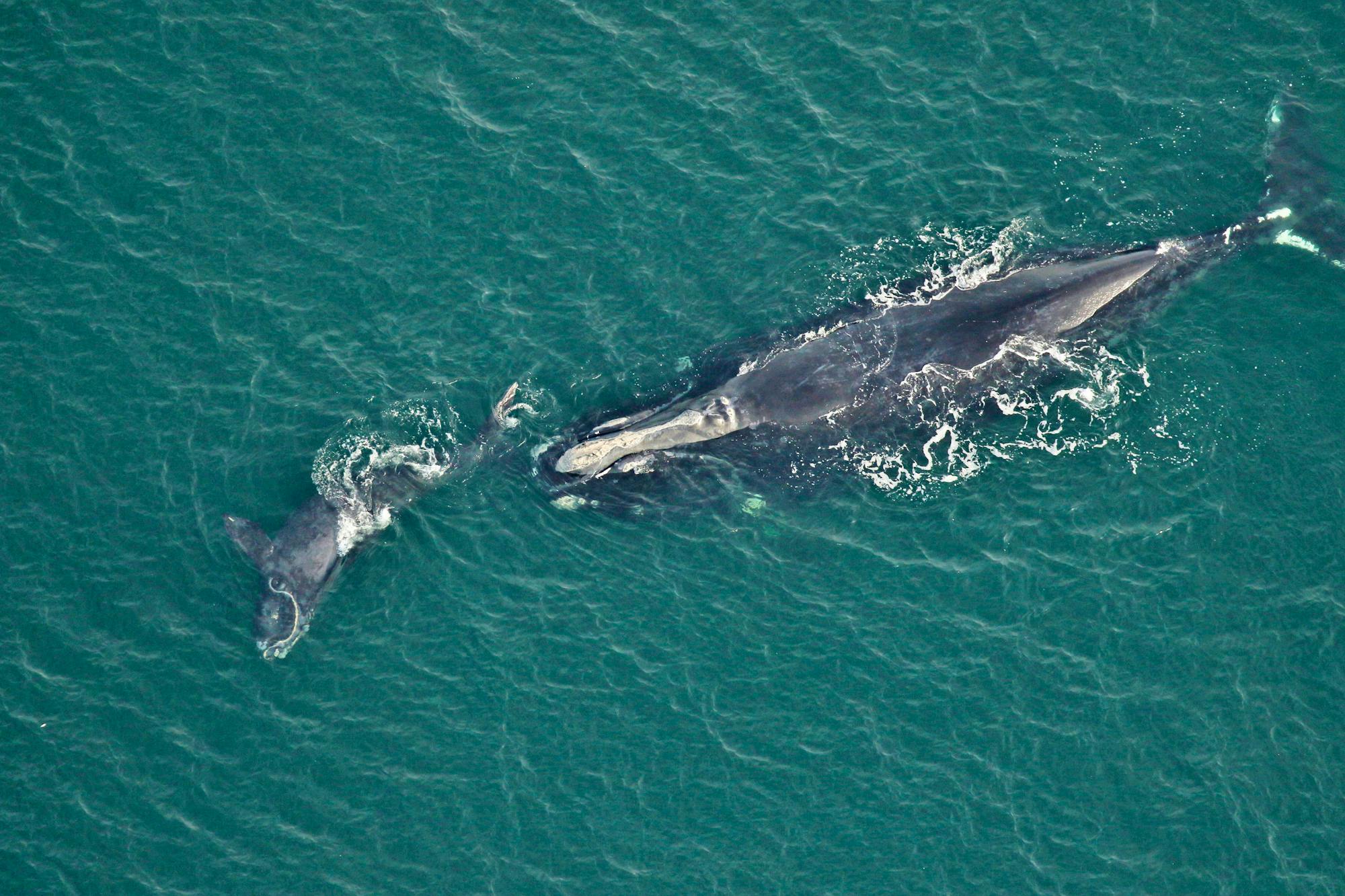Tweet“The federal government has known for years that right whales urgently require expanded vessel strike protections, yet has repeatedly kicked the can down the road. When the Biden administration finally issued a proposal to do just that, we hoped it would act as quickly as it promised to finalize the expansion. Unfortunately, it has continued its practice of overpromising and underdelivering. We have no choice but to go back to court to get a deadline to force the government to do its job.”
Conservation groups have asked a federal court on Feb. 13 to lift a stay and allow paused litigation to proceed, in pursuit of a deadline for final action on a proposed rule expanding protections for North Atlantic right whales from deadly vessel strikes. Filed in 2021, the case challenges the federal government’s unreasonable delay in acting to protect these critically endangered whales.
“The federal government has known for years that right whales urgently require expanded vessel strike protections, yet has repeatedly kicked the can down the road,” said Jane Davenport, senior attorney at Defenders of Wildlife. “When the Biden administration finally issued a proposal to do just that, we hoped it would act as quickly as it promised to finalize the expansion. Unfortunately, it has continued its practice of overpromising and underdelivering. We have no choice but to go back to court to get a deadline to force the government to do its job.”
Only around 360 North Atlantic right whales survive today. The population is declining faster than birth rates can keep up due to vessel strikes and fishing gear entanglements throughout their habitat in the United States and Canada. Since the groups filed suit in January 2021, vessel strikes in the U.S. have killed a first-time mother and her calf, followed by an adult male. A more recent strike seriously injured a newborn calf, which was spotted in early January with devastating head and face wounds from a boat propeller and is unlikely to survive.
“Until proven technological solutions exist, the best solution is to immediately implement mandatory slow zones to protect both right whales and boaters,” said Regina Asmutis-Silvia, executive director of Whale and Dolphin Conservation. “Both physics and common sense tell us there’s a reason we don’t encourage drivers to speed through school zones.”
In November, pregnant right whales begin their annual migration from northern feeding grounds to their only known calving grounds in the warm, shallow waters off the southeastern U.S., between North Carolina and Florida. Mother-calf pairs spend a great deal of time at or near the water’s surface, making them particularly vulnerable to vessel strikes. For the past two years, the Biden administration has denied petitions by conservation groups calling for an emergency rule expanding protections for mothers and calves in the calving grounds.
“The saddest aspect of the last several years is the avoidable deaths of calves that didn’t even make it to their first birthday,” said Erica Fuller, senior counsel at Conservation Law Foundation. “Good intentions will not save right whales; a strong vessel speed rule will save right whales. The government needs to act with the urgency that the situation demands.”
A 2008 vessel speed rule is the only protection right whales currently have from vessel strikes in U.S. waters. The rule applies only to vessels 65 feet and longer, requiring a speed limit of 10 nautical miles per hour in times and places right whales were considered most at risk in 2008. Since then, due to changing climate, right whales have shifted their habitat and new data shows that vessels between 35 and 65 feet long have struck and killed right whales. NOAA Fisheries has repeatedly stated that a vessel speed rule expansion is necessary to safeguard right whales from extinction.
“Watching North Atlantic right whales get hurt while federal agencies drag their feet on a speed limit rule is heart-wrenching and beyond frustrating,” said Catherine Kilduff, a senior attorney at the Center for Biological Diversity. “We’ve already seen the devastating consequences of an ‘anything goes’ approach, when a boat struck and gravely injured a calf off South Carolina last month. No one wants to lose more right whales, and slowing down vessels is the least we can do to try and prevent these beautiful creatures from going extinct.”
In 2012 and 2020, the conservation groups petitioned the federal government to expand the 2008 rule. When the government failed to respond to those petitions, the groups filed suit in 2021. NOAA Fisheries published a proposal to expand the 2008 regulation in August 2022, but the rule has yet to be finalized.
In August 2022, conservation groups reached an agreement with the federal government to put the case on hold after NOAA Fisheries released its proposed rule. This new action by conservation groups was prompted by the ongoing delay in finalizing the rulemaking, coupled with the recent vessel strike on the calf in the southeastern calving grounds, which NOAA Fisheries found was likely caused by a vessel between 35 and 57 feet long.
If finalized, the proposed speed rule would apply to vessels 35 feet and longer and would update seasonal speed zones to match right whale distribution. It would also require vessels to comply with temporary dynamic speed zones triggered by visual or acoustic right whale detections.
For over 75 years, Defenders of Wildlife has remained dedicated to protecting all native animals and plants in their natural communities. With a nationwide network of nearly 2.1 million members and supporters, Defenders of Wildlife is a leading advocate for innovative solutions to safeguard our wildlife for generations to come. To learn more, please visit https://defenders.org/newsroom or follow us on X @Defenders.
News

Study Led by Defenders of Wildlife Scientist Shows Noise Pollution Impacts on Migratory Birds








